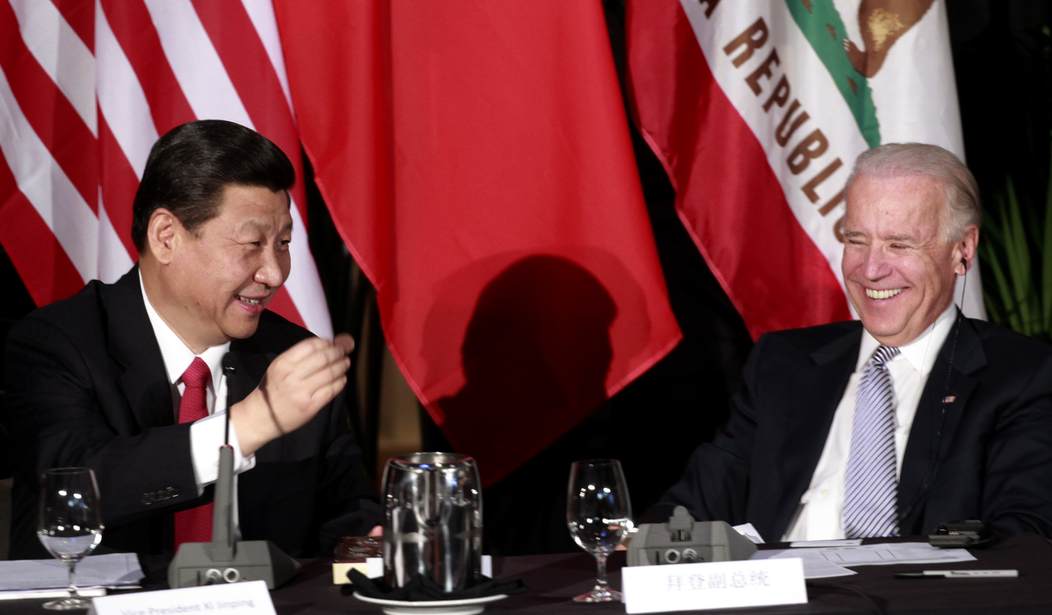Sometime in the next decade — perhaps the next six years — China will seek to annex Taiwan by invading and conquering the island. For more than a decade, U.S. military planners have war-gamed scenarios and they all point to a rapid American defeat.
China’s military buildup — both in numbers and capability — will soon surpass the U.S. and leave American policymakers with the unpalatable choice of pulling back and ceding supremacy to the Chinese or confronting them. If we confront China, it will almost certainly be over Taiwanese sovereignty.
China’s proximity to Taiwan and the enormous amount of men and material they could pour into any conflict makes war in and around the island nation an insurmountable problem. Unless the U.S. is willing to risk a general war with China, Taiwan is all but good and lost.
“More than a decade ago, our war games indicated that the Chinese were doing a good job of investing in military capabilities that would make our preferred model of expeditionary warfare, where we push forces forward and operate out of relatively safe bases and sanctuaries, increasingly difficult,” Air Force Lt. Gen. S. Clinton Hinote, deputy chief of staff for strategy, integration and requirements, told Yahoo News in an exclusive interview. By 2018, the People’s Liberation Army had fielded many of those forces in large numbers, to include massive arsenals of precision-guided surface-to-air and surface-to-surface missiles, a space-based constellation of navigation and targeting satellites and the largest navy in the world.
“At that point the trend in our war games was not just that we were losing, but we were losing faster,” Hinote said. “After the 2018 war game I distinctly remember one of our gurus of war gaming standing in front of the Air Force secretary and chief of staff, and telling them that we should never play this war game scenario [of a Chinese attack on Taiwan] again, because we know what is going to happen. The definitive answer if the U.S. military doesn’t change course is that we’re going to lose fast. In that case, an American president would likely be presented with almost a fait accompli.”
China went to school and studied America’s two wars in Iraq. The U.S. has successfully conducted what the military refers to as “anti-access, area denial” where we have a long, slow buildup of overwhelming force and then unleash air attacks that devastate the enemy. China’s capabilities have been constructed to counter that.
The PLA’s military plans rely on space-based and airborne surveillance and reconnaissance platforms; massive precision-guided missile arsenals; submarines; militarized man-made islands in the South China Sea; and a host of conventional air and naval forces to hold U.S. and allied bases, ports and warships in the region at risk. Because it lies only 90 miles from Taiwan, China needs only to hold U.S. forces at bay for a matter of weeks to achieve its strategic objective of capturing Taiwan.
“Whenever we war-gamed a Taiwan scenario over the years, our Blue Team routinely got its ass handed to it, because in that scenario time is a precious commodity and it plays to China’s strength in terms of proximity and capabilities,” said David Ochmanek, a senior RAND Corporation analyst and former deputy assistant secretary of defense for force development. “That kind of lopsided defeat is a visceral experience for U.S. officers on the Blue Team, and as such the war games have been a great consciousness-raising device. But the U.S. military is still not keeping pace with Chinese advances. For that reason, I don’t think we’re much better off than a decade ago when we started taking this challenge more seriously.”
The Pentagon has been busy fighting counterterrorism and counterinsurgency wars over the last two decades while China has been perfecting its offensive capabilities. Can the U.S. military switch gears and pivot toward China?
The United States no longer needs Middle Eastern oil and maintaining forces in Iraq and Afghanistan has become unnecessary. The theater of action will be in the waters off of Taiwan as two superpowers come face to face. Will it mean war? We can always refuse to engage and move on to more defensible assets in the region. But the national confidence that China will get from shoving America aside in Taiwan would embolden the Chinese Communists to become even more aggressive against our friends in the region.
Whatever happens with Taiwan will likely determine the fate of America and the West for the rest of this century and beyond.










Join the conversation as a VIP Member